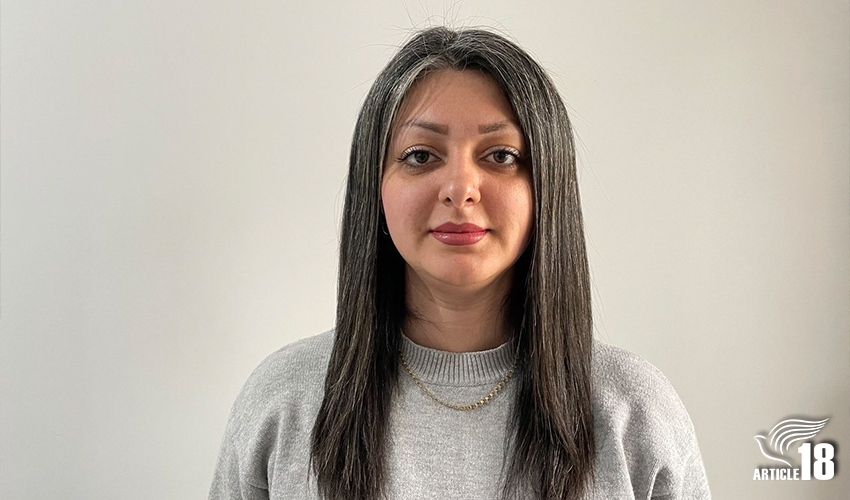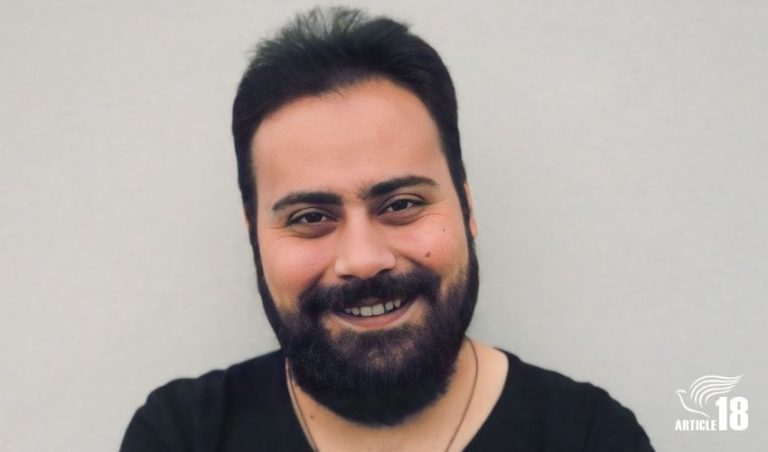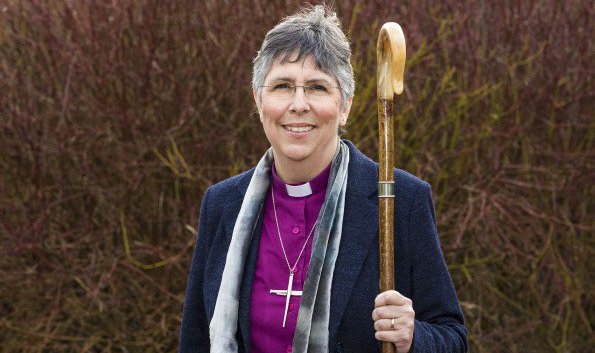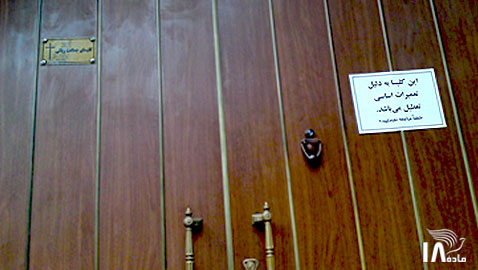
Shadi Noveiri was strip-searched multiple times during her 40 days in detention, an experience she describes as “absolutely humiliating and I believe illegal”.
The Christian convert, who turned 25 during her incarceration, was subjected to the search each time she was taken from the Ministry of Intelligence detention centre in Rasht, where she was interrogated, back to Lakan Prison, which she calls “one of the worst and most unsanitary prisons in Iran”.
“The other prisoners told me: ‘When they want to punish a prisoner, or send them into exile, they send them to Lakan Prison.’”
Shadi says the strip-search was used as a form of emotional and psychological torture.
“We had to get naked and the female jailer would search our bodies with her hands,” she explains. “Every time, I felt very sick.
“Once I became angry and said to her: ‘How many times do you need to do this inspection?’ Then I cried out loud. I cried so hard and with all my heart, and the officer got upset and started crying with me.
“‘I’m here because of my faith, and because I’m a Christian!’ I said. ‘I didn’t do anything wrong! I didn’t commit any crime to deserve that you would behave like this!’ The officer was very troubled by my words.”
Shadi was arrested alongside her friend, Maryam, in November 2015. The next day, they were charged with “acting against the country’s security through membership of a branch of the Christian community”.
In practice, this vaguely-worded charge meant that Shadi and Maryam were part of a house-church – the only place where Christian converts can gather together to worship in Iran, as they are no longer permitted to enter the churches of Iran’s Assyrian and Armenian Christian minorities.
But even these house-churches are outlawed and considered anti-state operations, as can be clearly seen in the types of questions Shadi was asked by her interrogators:
“What is the name of your pastor and what are his activities? What are your activities at church? Which organisations are you connected to? Do you get paid? Confess and write down the names of the Christians you know, and their activities in the church.”
Shadi and Maryam were eventually sentenced to three months in prison for their “crime”, under Article 499 of the penal code, relating to membership of groups that “aim to disrupt the security of the country”.
But by this time Shadi had already fled the country.
“After my release, I felt that the intelligence agents were always following me and that I was under surveillance,” she says. “In front of our apartment, a car constantly stood guard, controlling my coming and going. I was under their watch wherever I went.
“My family were happy about my release from prison, but alongside this happiness, they were also worried. My father was very upset when he learned about my decision to leave Iran, but he supported me and said: ‘If that is the best decision for you, then go.’ He supported me as much as he could.”
Shadi left Iran less than a month after her release from prison, and claimed asylum in Turkey. Two months later, her father died.
“I had not yet been able to digest the circumstances of my arrest and imprisonment, when suddenly my father died and I felt deep grief and deeply traumatised,” Shadi says.
“When I came to Turkey, I felt confused for six months and said to myself: ‘What am I doing here?’ I was emotionally, psychologically and financially very damaged. I felt that I had lost all my life and opportunities to serve. I felt depressed and very bad.
“I have been in Turkey for seven years now, and haven’t been interviewed by the UN or the Turkish immigration office. Whenever I pursued my case, I was told by officials that they’d be in touch, but it has never happened.”
But Shadi says that emotionally she is now “on the road to recovery”, thanks to the help of a counsellor, and a trauma-awareness seminar put on by Article18.
Meanwhile, Shadi now spends most of her time working for the Christian satellite TV channel through which both she and her mother came to faith.
“Although my contact with the remaining members of my family is almost cut off, I serve in my local church and, besides preaching and teaching, I also am active among women,” she says. “In addition, I have some collaboration with the Bible Society. But most of my activity these days is with Mohabat TV.
“I am currently the host of the Superbook Sunday School programme, and I am also currently producing Christian psychological content for parents and children that can be helpful for parents regarding the challenges they may have with their children. I also work on Christian podcasts.”
And as for spending her 25th birthday behind bars?
“That day was very special for me,” Shadi says. “In the whole history of my life, the fact that I spent one birthday in prison, in that environment, is very interesting to me. It was a special experience. To be honest, I was really sad that day that I was in prison, but after I got out of prison, every year, on my birthday, I remember that day in prison.
“I was in prison on one of my birthdays! It was a special experience, and it’s hard for me to describe how I felt at that time, but I only know that this event was very special for me, and I thought about how interesting it is that God allowed me to be in prison in that situation for one of my birthdays. And that was what I was thinking about on that day.”
You can read Shadi’s full Witness Statement here.



0 Comments
Trackbacks/Pingbacks